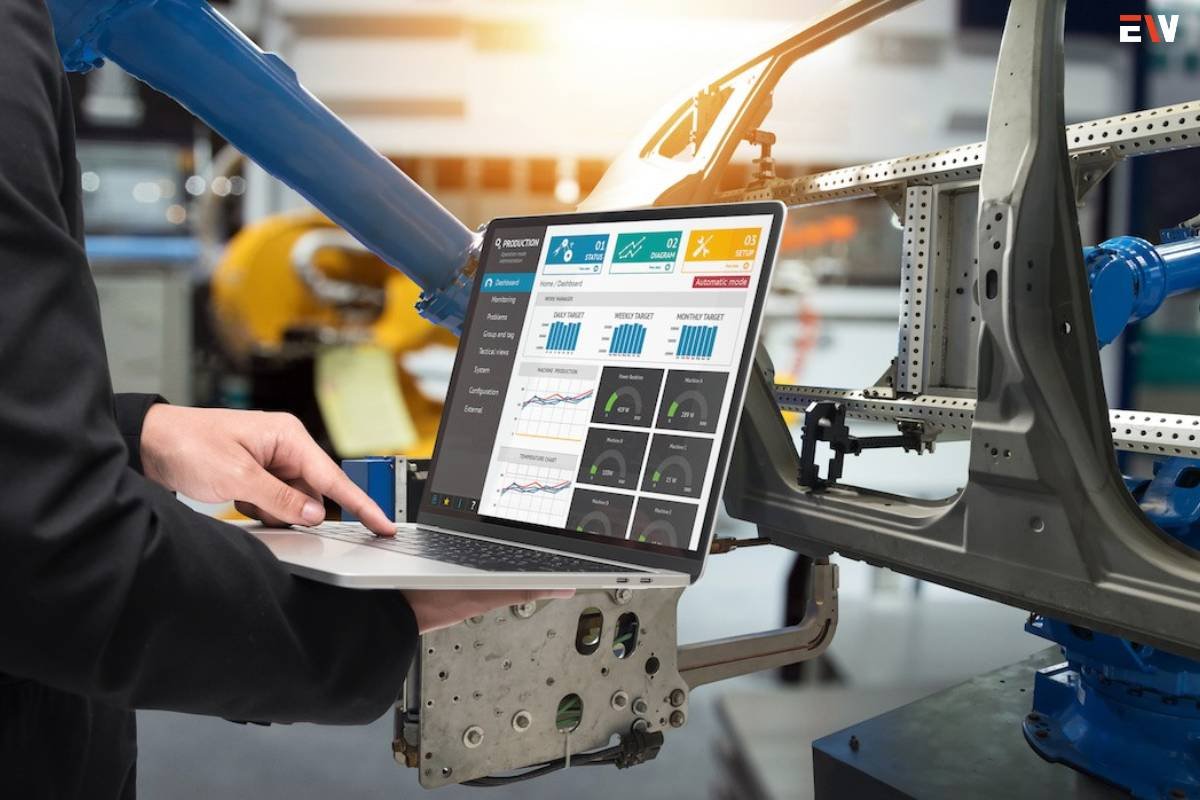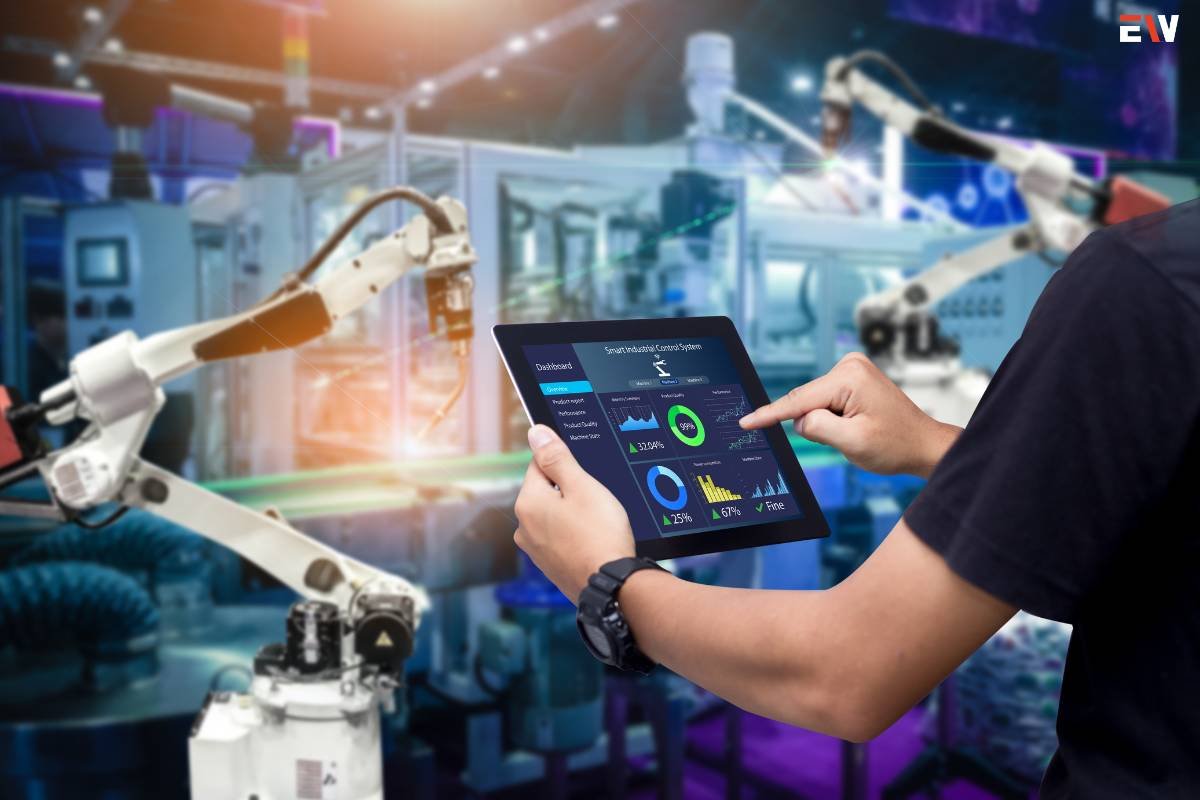Smart manufacturing, an integral component of the Industry 4.0 revolution, represents a paradigm shift in how goods are produced, bringing together cutting-edge technologies to create highly efficient, interconnected, and adaptive manufacturing ecosystems. This article explores the multifaceted landscape of smart manufacturing, delving into its key principles, transformative technologies, applications across various industries, and the profound impact it has on shaping the future of manufacturing.
Here Are the Power and Impact of Smart Manufacturing:
Key Principles of Smart Manufacturing
Digital manufacturing is guided by several key principles that collectively redefine the traditional manufacturing landscape:
1. Interconnectivity
At the heart of cyber manufacturing is the seamless interconnectivity of machines, devices, and systems. Through the Internet of Things (IoT) and other communication technologies, disparate elements in the manufacturing process communicate and share real-time data. This interconnectedness enhances collaboration, reduces downtime, and allows for better decision-making.
2. Data Analytics and Artificial Intelligence (AI)
Precision manufacturing relies heavily on data analytics and AI to process vast amounts of data generated by sensors and devices. Advanced analytics extract actionable insights, enabling manufacturers to optimize processes, predict maintenance needs, and make informed decisions for improved efficiency and productivity.
3. Automation and Robotics
Automation and robotics play a central role in precision manufacturing. Automated systems, guided by AI algorithms, can perform tasks with precision and speed, leading to enhanced productivity, reduced errors, and the ability to adapt to dynamic production demands.
4. Digitization of Manufacturing Processes
Smart manufacturing involves the digitization of manufacturing processes, transforming physical assets and processes into digital representations. This digital thread provides a comprehensive view of the entire product lifecycle, facilitating better control, monitoring, and optimization.
5. Real-Time Monitoring and Control

Technical manufacturing emphasizes real-time monitoring of production processes. Sensors and IoT devices capture data at every stage, allowing manufacturers to monitor performance, identify bottlenecks, and make timely adjustments to ensure optimal efficiency.
Transformative Technologies in Smart Manufacturing
Several transformative technologies are at the core of technical manufacturing, driving its evolution and enhancing its capabilities:
1. Internet of Things (IoT)
The IoT forms the backbone of precision manufacturing, enabling the connection of devices, sensors, and machines. This interconnected network facilitates data exchange, remote monitoring, and real-time communication, paving the way for agile and responsive manufacturing processes.
2. Artificial Intelligence (AI) and Machine Learning (ML)
Artificial Intelligence and ML algorithms analyze vast datasets to derive meaningful insights, optimize processes, and predict potential issues. Machine learning, in particular, enables systems to learn and adapt, enhancing decision-making and automating complex tasks.
3. Additive Manufacturing (3D Printing)
Additive manufacturing, or 3D printing, is a transformative technology in digital manufacturing. It allows for the production of intricate and customized components with reduced material waste, offering flexibility in design and rapid prototyping.
4. Robotics and Automation
Robotics and automation technologies play a pivotal role in smart manufacturing, enhancing efficiency, accuracy, and flexibility. Collaborative robots (cobots) work alongside human operators, performing repetitive or dangerous tasks, while advanced robotic systems handle complex operations with precision.
5. Augmented Reality (AR) and Virtual Reality (VR)
AR and VR technologies are employed for training, maintenance, and remote assistance in digital manufacturing. These immersive technologies provide real-time information, aiding workers in troubleshooting, assembly processes, and maintenance tasks.
6. Cyber-Physical Systems (CPS)

CPS integrates physical processes with computational elements, creating intelligent systems capable of monitoring and controlling physical processes. These systems enable real-time adjustments based on data analytics, contributing to the agility and adaptability of manufacturing operations.
Applications Across Industries
Smart manufacturing has found applications across diverse industries, transforming traditional manufacturing processes and optimizing production workflows. Some notable sectors benefiting from precision manufacturing include:
1. Automotive Industry
In the automotive sector, smart manufacturing enhances production efficiency, quality control, and supply chain management. The integration of IoT sensors in vehicles enables real-time monitoring and predictive maintenance, while smart factories streamline assembly lines and optimize inventory management.
2. Pharmaceuticals and Life Sciences
Mass manufacturing is revolutionizing pharmaceutical production by ensuring compliance, traceability, and quality control. Automation and data-driven processes improve batch consistency, reduce errors, and enhance overall efficiency in pharmaceutical manufacturing.
3. Electronics and Semiconductor Manufacturing
Precision and speed are paramount in electronics manufacturing. Digital manufacturing optimizes the production of microelectronics, semiconductors, and electronic components through real-time monitoring, automated testing, and adaptive production processes.
4. Aerospace and Defense
In the aerospace and defense industry, cyber manufacturing contributes to the production of complex and high-precision components. The integration of IoT, AI, and robotics enhances manufacturing processes, reduces lead times, and ensures the quality and reliability of aerospace components.
5. Food and Beverage
Smart manufacturing improves efficiency and traceability in the food and beverage industry. Automation and IoT devices monitor production processes, ensuring compliance with quality standards, optimizing inventory management, and minimizing waste.
Impact on the Future of Manufacturing
The adoption of precision manufacturing is reshaping the future of the industry in several profound ways:
1. Agile and Adaptive Manufacturing
High-quality manufacturing enables agile and adaptive production processes. Manufacturers can quickly respond to changing market demands, customize products efficiently, and adjust production schedules in real-time.
2. Predictive Maintenance and Reduced Downtime

Predictive maintenance, powered by data analytics and IoT sensors, minimizes downtime by anticipating equipment failures before they occur. This proactive approach enhances equipment reliability, extends lifespan, and reduces maintenance costs.
3. Sustainable and Efficient Operations
Smart manufacturing promotes sustainability by optimizing resource usage, reducing waste, and minimizing environmental impact. Data-driven decision-making allows for energy-efficient operations, reduced material waste, and overall resource optimization.
4. Enhanced Quality Control and Traceability
The integration of smart technologies enhances quality control measures throughout the manufacturing process. Real-time monitoring, data analytics, and traceability solutions ensure that products meet stringent quality standards, fostering customer trust and brand reputation.
5. Empowered Workforce
Digital manufacturing empowers the workforce by augmenting human capabilities with advanced technologies. Workers collaborate with intelligent systems, leveraging data insights to make informed decisions and focusing on tasks that require creativity, problem-solving, and critical thinking.
6. Global Connectivity and Supply Chain Resilience
Digital manufacturing facilitates global connectivity, enabling seamless collaboration between manufacturers, suppliers, and distributors. This interconnectedness contributes to the resilience of global supply chains, allowing for efficient coordination and adaptability.
Conclusion
Smart manufacturing represents a transformative force that is reshaping the manufacturing landscape across industries. Guided by principles of interconnectivity, data-driven decision-making, and advanced technologies such as IoT, AI, and robotics, precision manufacturing is driving increased efficiency, agility, and sustainability.
As the industry continues to embrace the potential of cyber manufacturing, the future holds promise for further innovation, enhanced collaboration, and the creation of intelligent, adaptive manufacturing ecosystems. The impact of high-quality manufacturing extends beyond the factory floor, influencing supply chains, workforce dynamics, and the overall trajectory of industrial development. As we navigate the evolving landscape of Industry 4.0, smart manufacturing stands as a beacon of innovation, propelling the manufacturing industry into a new era of efficiency, resilience, and continuous improvement.










